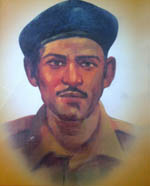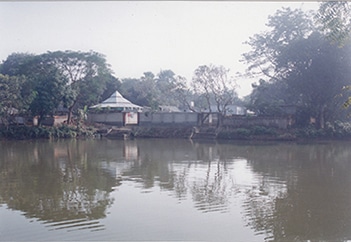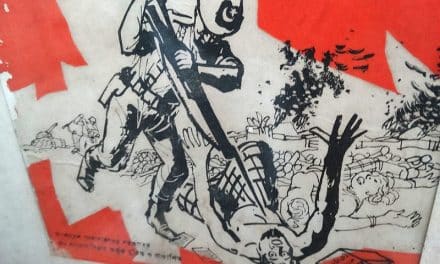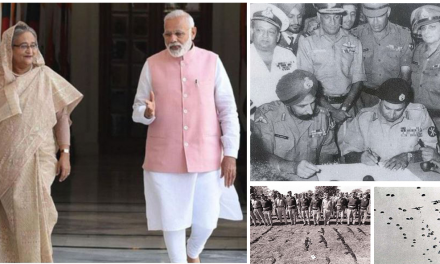Nur Mohammad Sheikh was born on February 26, 1936, in Moheshkhali village(now called Nur Mohammad Nagar) Narail. He started at an early age as a student at a local educational institution. He became an orphan at a very young age, so he was compelled to discontinue his academic education after seventh grade, belonging to a low-income family. He had a vivid interest in theatre, music and games. Being an orphan in childhood, he had many barriers; financial inability bloodied him in every step of his life ahead. For that, he had to take an objectionable decision as selling his paternal landed property to arrange his subsistence. After a brutal fight against hard times, he set off for Dhaka to search for his future.
On March 14, 1959, Nur Mohammad Sheikh became a member of EPR(East Pakistan Rifles) and was sent to Rajshahi for his training. After completion of his training, he was posted his first at the Dinajpur sector. He took part in the war of Indo-Pakistan in the year 1965. After the war, he was awarded ‘Tamgha-e-Jung’ and ‘Sitara-e-Harb’ for his courage and incredible performance on the bloody battlefield. In July 1970, he felt very irritated when he was shifted to Jessore 4 no wing under the Jessore Headquarter sector, only lacking a Bengali officer there. But he removed his displeasure only when the Bengali officer named Major Abu Osman Chowdhury was added to that wing.
Battle of Goalhati
Nur Mohammad Sheikh was on vacation when the ‘Liberation War’ started in March 1971. Immediately he joined sector eight and fought for so many battles at Jessore sector. ‘Battle of Goalhati’ became the turning point in Nur Mohammad Sheikh’s life. He was chosen as the captain of the Standing Patrol team at Goalhati’ in Jessore’s Chutipur(Sutipur) Camp, which was motivated for monitoring the Pakistani army. On September 5, 1971, when Nur Mohammad Sheikh was patrolling with his two fellow soldiers. Suddenly the Pak army ambushed them from the three different sides. In abruptness of the incident, Nur Mohammad attempted to turn back to their base camp, but Nannu Mia, one of his compatriots, was severely injured when a Pakistani bullet hit him. Nur Mohammad continued firing from the LMG in different places to confuse the Pakistani army and tried to carry Nunu Miya to safety. During this time Nur Mohammad, himself was hit by a mortar; his foot was smashed. Despite being fatal injured, he did not deviate from his duty to cover fire for his team to escape that miserable condition. Then Mostafa, Nur Mohammad’s other fellow soldier, begged Nur Mohammad to go with him but failed. Nur Mohammad gave his light machine gun to Mostafa so that it can to not be seized after his death. He kept on firing from a self loaded rifle until his end. His badly mutilated body was found in the jungle; he was just 35.
Nur Mohammad Sheikh devoted his life to his motherland and did not seek anything in return. He was a true leader who saved his subordinates without thinking of his own safety. His dream of free ‘Sonar Bangla’ was fulfilled a month and a half later; unfortunately, he was not there to witness it.
Nur Mohammad was awarded posthumously by ‘Bir Shreshtha’ for his actions and devotion to his motherland. He was buried in Kashipur. A public college and a hospital are named after him.

Image Courtesy: Bangladesh Govt | Junaid Alam khan
















